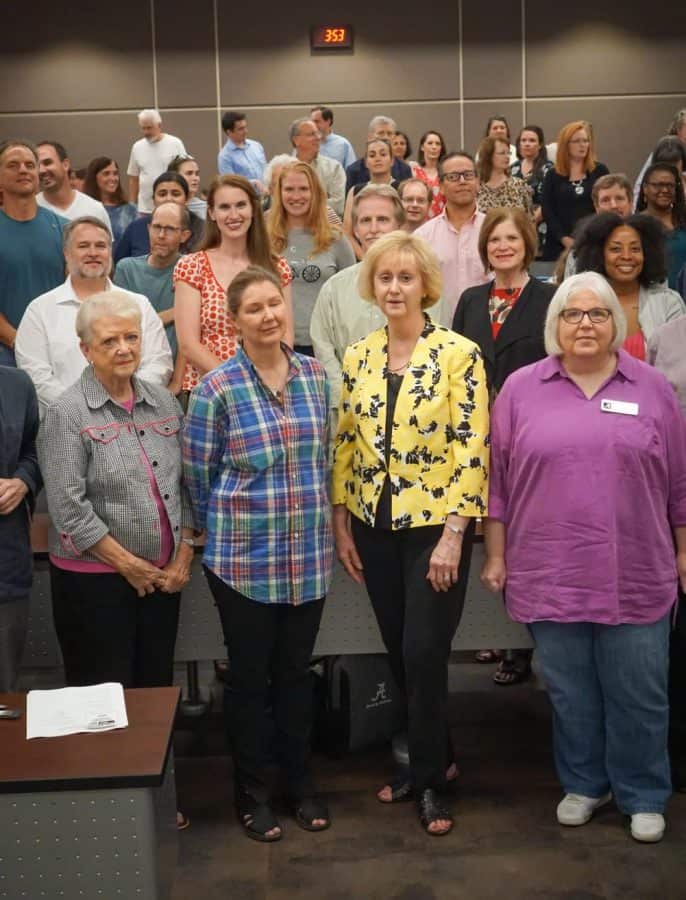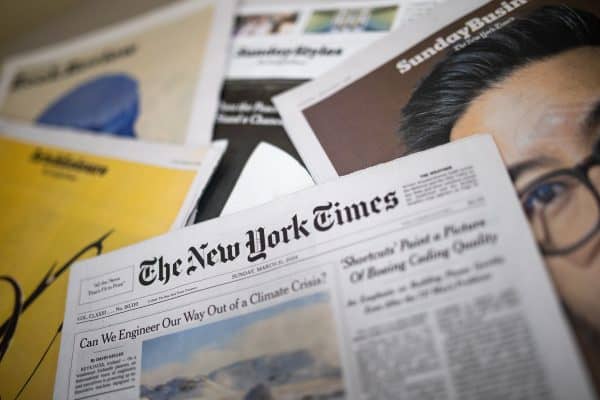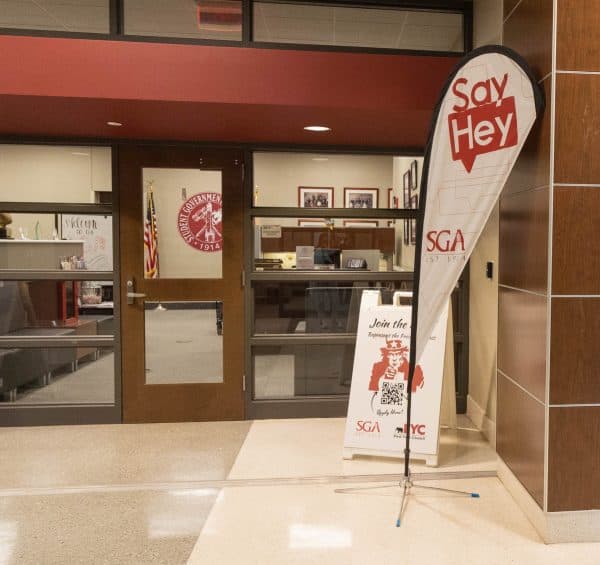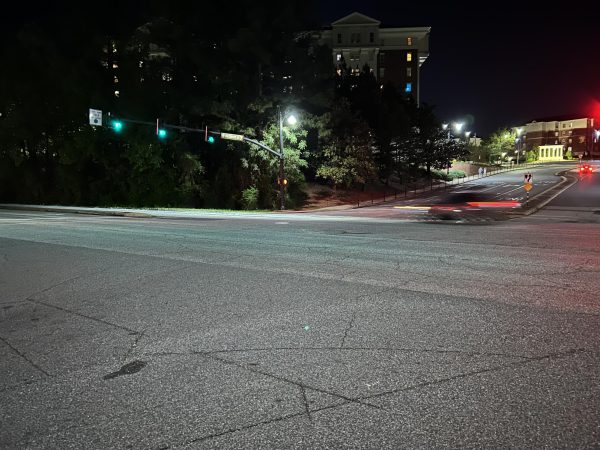Faculty Senate proposes task force to change campus culture
September 19, 2019
Frustrations boiled over at the most recent University of Alabama Faculty Senate meeting as the members discussed how to respond to the resignation of former Dean of Students Jamie Riley.
Amid disagreement over the language of a letter from the Senate addressing Riley’s resignation, Faculty Senate president Rona Donahue asked her colleagues, “So we’re saying that The University of Alabama has a racist and toxic environment?” to which various members responded “Yes,” while others murmured seemingly in disagreement.
The Faculty Senate voted Tuesday to set aside their meeting agenda, opting instead to devote the meeting to discussing faculty concerns about Riley’s resignation and creating a response addressing the University’s reluctance to release details surrounding the resignation.
A motion to approve an executive session was approved, meaning press and non-members of the Faculty Senate were required to leave the room so members could privately discuss the situation surrounding Riley’s resignation.
Ten senators, including journalism professor Dan Meissner, voted against the executive session, preferring to keep press and non-senators present for the entire discussion in the interest of transparency. Michael Altman, assistant professor in the religious studies department, seconded Meissner’s comments.
“I don’t think there’s going to be any discussion that would be detrimental to Dr. Riley,” Meissner said. “So I don’t feel that he needs to be protected in this discussion. But as we condemn the administration for their lack of transparency in this process, I think it behooves us to discuss this in an open session and keep as much transparency in our deliberations and in this process as we possibly can.”
Following the executive session, the meeting moved back to open session, allowing press and non-senators to reenter the room for the rest of the meeting.
Senators then deliberated over edits to an open letter from the Faculty Senate to the University addressing concerns surrounding Riley’s resignation.
Altman motioned to include in the letter that Riley’s resignation raises questions about the University’s commitment to free speech, which passed to be included with one abstained vote.
André Denham, an associate professor and president of the Black Faculty and Staff Association, suggested several changes to the letter, mainly to ensure the word “racism” would be included in the letter.
Altman voiced agreement with Denham on the need to mention race in the letter, mentioning he has heard from faculty that people of color are hesitating to enroll or apply for employment at the University following Riley’s resignation and the administrators’ lack of clarification on this issue.
The motion to approve these edits passed with two abstained votes, including one from associate professor of statistics Bruce Barrett, who disagreed with connecting the issue of free speech to Riley’s resignation given that the circumstances of the resignation have not been made public.
“We don’t know the circumstances,” Barnett said. “It may be that Dr. Riley himself was the one that asked to have these conditions closed. We’re making a lot of accusations where we just don’t know what happened. But if we can just ask them to affirm their commitment to free speech, then that’s what we need to have.”
After the letter was approved, the faculty motioned to propose the creation of a task force composed of eight to ten Senators dedicated to “fully assess the impact of Dr. Riley’s resignation” on the campus community through meeting with students, faculty and staff and to address aspects of campus culture that “lead segments of the UA community to feel marginalized, threatened, unsafe and/or unheard.”
Donahoe said she is optimistic about what the task force will accomplish in addressing the concerns that have spread across campus following Riley’s resignation.
“I’m a cockeyed optimist with everything, and I really hope that, as unfortunate the climate that this situation has created is, that we can move forward and come out better than the other side,” Donahoe said.











